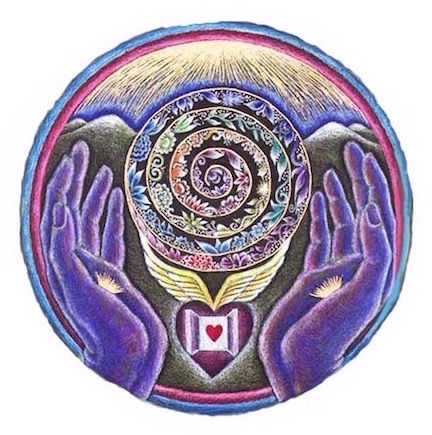Addiction to Spirituality: The Spiritual Bypass
By Dr. Margaret PaulMay 16, 2016
Are you using your spirituality as a "spiritual bypass" to avoid feeling your feelings and taking responsibility for them?

Lian had been meditating for many years before consulting with me for his depression. He had been part of a spiritual community that encouraged their members to turn to God through prayer and meditation whenever they were feeling any difficult or painful feelings such as anger, hurt, anxiety or depression. He had been taught that Spirit would transmute his feelings for him and bring him the inner peace he sought.
Yet Lian was depressed. "I have faithfully practiced what I've been taught, so why am I still depressed? What am I doing wrong?"
Lian was suffering from what is called "spiritual bypass."
Spiritual bypass occurs when people use their spiritual practice as a way to avoid dealing with and taking responsibility for their feelings. Anything that is used to avoid feeling and taking responsibility for feelings becomes an addiction - whether it is alcohol, drugs, food, TV, work, gambling, spending, shopping, anger, withdrawal...or meditation. If, when a difficult or painful feeling comes up, you immediately go into meditation in the hopes of blissing out and getting rid of the feeling, you may be addicted to spirituality.
It all depends on what your intent is when you are meditating. People can meditate for two totally different reasons: to avoid pain or to learn about love.
If you are meditating to connect with yourself and your spiritual Guidance in order to learn more about loving yourself and others, then meditation is a good way to get out of your head and into your heart. It is a good way to connect with a loving part of yourself so that you can welcome and embrace your painful feelings and learn what you may be doing or thinking that is causing your own pain. When your intent is to be loving to yourself and take responsibility for your own feelings, then meditation can help you become centered and compassionate enough to do an Inner Bonding process.
However, if you are using meditation to bliss out and avoid your pain, you are using your spirituality addictively. You are using your spirituality to bypass learning about and taking responsibility for your feelings.
This is what Lian was doing. Because he was avoiding learning from his feelings, he was continuing to think and behave in ways toward himself and others that caused him to feel depressed. Then, instead of exploring what he was doing that was causing his feeling self, his inner child, to feel depressed, he was meditating to try to get rid of the feelings.
In his work with me, Lian discovered that he was constantly either ignoring his feelings or judging himself. The combination of ignoring his feelings - which he did primarily through meditation - and judging himself resulted in his inner child feeling unloved, unimportant and unseen. Lian saw that if he treated his actual children in the way he treated himself - ignoring their feelings and constantly judging them - they would also feel badly and maybe depressed. But Lian did attend to his actual children's feelings and needs. It was his own that he ignored and judged.
Lian realized that he was treating himself the way his parents had treated him. He was a much better parent to his children than his parents had been with him, but he was parenting his own inner child the way he had been parented. He was not only treating himself the way he had been treated, he was treating himself the way his parents had treated themselves. As a result, he was not being a good role model for his children of personal responsibility for his own feelings, just as his parents had been poor role models for him.
In the course of working with me, Lian learned the Inner Bonding process. He learned to welcome his painful feelings during meditation. He learned to quiet the self-judgmental part of himself and to treat himself with caring and respect. He learned to take loving action on his own behalf so that his inner child no longer felt abandoned by him. It was the inner abandonment that was causing his depression. He discovered that his depression was actually a gift - a way his inner child was letting him know that he was not being loving to himself. With practice, Lian learned to take loving care of himself and his depression disappeared. Now his meditation practice was no longer a spiritual bypass.
Start learning to connect with your spiritual Guidance with "Frequency: Your Spiritual Guidance & The Art of Manifestation" - A 30-Day Home-Study Experience with Dr. Margaret Paul
 Send this article to a friend
Send this article to a friend  Print this article
Print this article  Bookmarked 0 time(s)
Bookmarked 0 time(s)
| Related Articles |
|---|
| What Does it Mean to be a Spiritual Person? |
Comments
| Author | Comment | Date |
|---|---|---|
| Join the Inner Bonding Community to add your comment to articles and see the comments of others... | ||

Daily Inspiration
Today, notice what is more important to you - trying to get others to like you or loving yourself. If you are devoted to having control over how others' feel about you, notice how much energy this takes!
By Dr. Margaret Paul

 Share with Del.icio.us
Share with Del.icio.us Share with Digg
Share with Digg








